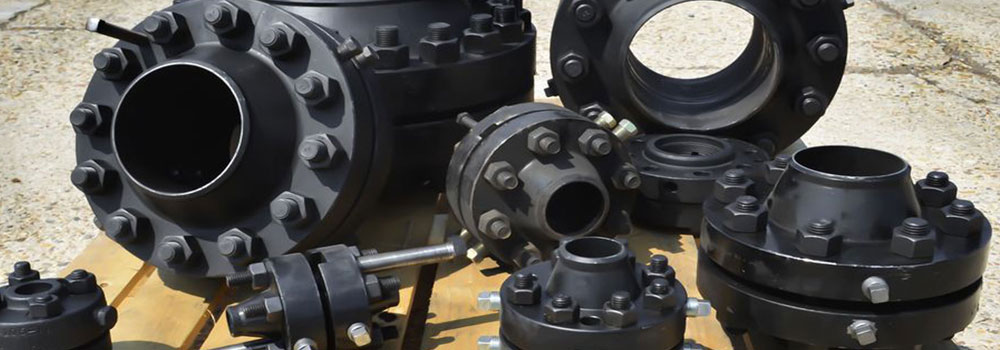Blind flanges are an essential component of piping systems, providing a dependable way to seal the ends of pipes, valves, or pressure vessel openings. They are utilized in a variety of sectors because of their capacity to isolate piping portions while also facilitating maintenance, testing, and inspection. Here are some common uses of blind flanges in pipe systems:
Applications of Blind Flanges
- Sealing the Ends of Piping Systems:
- Blind flanges are used to close off the ends of piping systems permanently or temporarily. This is essential for terminating piping lines or preparing for future expansion.
- Facilitating Maintenance and Repairs:
- They allow sections of the pipeline to be isolated for maintenance, cleaning, or repairs without affecting the rest of the system. This is particularly useful in complex piping networks where shutting down the entire system would be costly or impractical.
- Pressure Testing:
- Blind flanges can be used to conduct pressure tests on piping systems. By sealing off sections, pressure can be applied to test for leaks and ensure the system's integrity before it goes into operation.
- Isolating Equipment:
- In industrial plants, blind flanges are often used to isolate equipment such as pumps, valves, and pressure vessels for routine inspection or replacement without disrupting the entire process flow.
- Temporary Sealing During Construction:
- During the construction or modification of piping systems, blind flanges are used to temporarily seal open pipe ends to prevent debris and contaminants from entering the system.
- System Expansion:
- They provide a convenient method for sealing piping ends that may be extended in the future. When system expansion is required, the blind flange can be removed, and the pipeline can be extended as needed.
- Hydrostatic Testing:
- Blind flanges are utilized in hydrostatic testing to test the pressure of pipelines and tanks by sealing off sections to ensure they can withstand the required pressure levels.
- Safety Measures:
- In hazardous or high-pressure environments, blind flanges act as a safety measure to prevent accidental leaks or spills by securely closing off pipeline sections.
- Blocking Off Unused Connections:
- In systems with multiple outlets or branches, blind flanges can block off unused connections, preventing unnecessary flow or leakage.
Material Considerations
Blind flanges are available in a variety of materials to suit different applications, including:
- Carbon Steel: Commonly used for general applications with moderate temperature and pressure requirements.
- Stainless Steel: Preferred for applications requiring corrosion resistance and high strength.
- Alloy Steel: Used in high-temperature and high-pressure environments.
- PVC and Other Plastics: Utilized in non-corrosive and low-pressure applications, such as in water treatment plants.
For More Information : https://www.unifitmetalloys.com/





Comments